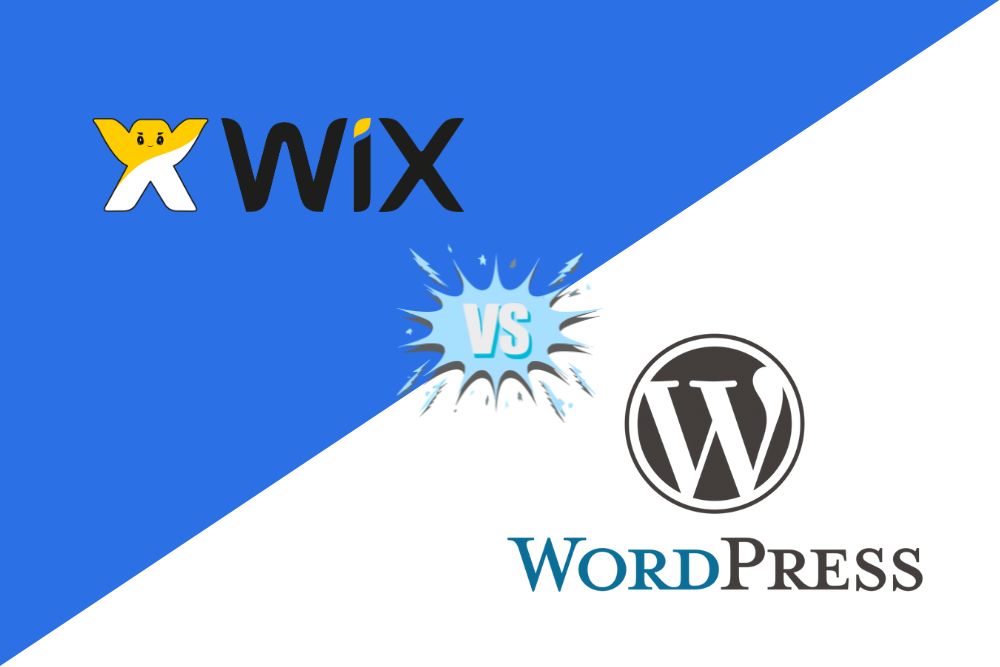Having a professional online presence is non-negotiable for small businesses. If you’re starting a consulting firm or a freelance portfolio, your website can be the difference between scaling up or fading into uncertainty. But with so many website-building platforms available, choosing the right one can feel overwhelming. Two of the most popular choices are Wix and WordPress. Both platforms have their strengths and weaknesses, but which one is the best fit for your small business?
Here, we’ll compare Wix and WordPress across several key factors to help you make an informed decision. If you’re a Website Designer in Dubai or simply looking for the best web design in Dubai, this article is designed to meet your needs.
1. Ease of Use
Wix is known for its user-friendly drag-and-drop interface, which makes website creation incredibly simple, even for beginners. You don’t need any coding skills to get started. Wix also provides a wide range of customizable templates and intuitive tools that allow you to build a website in just a few hours.
WordPress, on the other hand, has a higher level of technical difficulty. While it offers powerful customization options, it requires some basic technical knowledge, especially if you’re self-hosting with WordPress.org. However, WordPress.com does offer a more simplified experience, though it still isn’t as beginner-friendly as Wix.
Evaluation: For beginners or small business owners who want to get online quickly with minimal effort, Wix wins in terms of comfort of use.
2. Design Flexibility and Templates
Wix offers over 800 designer-made templates that are industry-specific. These templates are modern, mobile-responsive, and easy to customize with the drag-and-drop editor. However, once you choose a template on Wix, you can’t switch to another one without rebuilding your site.
WordPress offers thousands of free and premium themes that provide extensive flexibility. With the help of plugins and page builders like Elementor, Divi, or Beaver Builder, you can create virtually any design imaginable.
Evaluation: WordPress takes the lead for those seeking greater design flexibility and the ability to switch themes as their brand develops.
3. Customization and Control
Wix provides a closed ecosystem, which limits some customization capabilities. You can add apps from the Wix App Market, but you are limited to what Wix allows in terms of integrations and functionality.
WordPress (especially the self-hosted WordPress.org version) offers complete control over your website. You can install any plugin, edit the core files, and integrate with third-party tools and APIs. This makes WordPress ideal for businesses that need customized features or plan to scale.
Evaluation: WordPress wins for businesses that need more control and customization options.
4. E-commerce Capabilities
Wix includes built-in E-commerce functionality with features like product pages, payment gateways, inventory management, and abandoned cart recovery. It is suitable for small online stores and service-based businesses.
WordPress, with the addition of the WooCommerce plugin, transforms into a powerful E-commerce platform. WooCommerce is highly customizable and can support everything from physical products to digital downloads and subscription services.
Evaluation: WordPress offers more scalable E-commerce capabilities, though Wix is great for simpler online stores.
5. SEO and Blogging Tools
Wix has improved its SEO tools significantly in recent years. It allows you to edit meta titles, descriptions, alt text, and URLs. It also offers an SEO Wizard to guide beginners.
WordPress has long been the go-to platform for bloggers and content marketers. With plugins like Yoast SEO or Rank Math, WordPress offers advanced SEO capabilities, including schema markup, readability analysis, and in-depth customization.
Evaluation: WordPress is the winner for blogging and advanced SEO strategies.
6. Maintenance and Updates
Wix handles all updates and security patches for you. Since it is a hosted platform, you don’t have to worry about maintaining your site or ensuring it stays secure.
WordPress requires you to manage updates for the core software, themes, and plugins. If neglected, this can lead to security vulnerabilities. However, managed WordPress hosting providers like WP Engine or Kinsta take care of these issues for you.
Evaluation: Wix is more convenient for users who prefer not to deal with technical maintenance.
7. Cost Considerations
Wix has a free plan, but it comes with ads and a Wix-branded domain. Paid plans start at affordable monthly rates and include hosting, security, and customer support.
WordPress itself is free, but you’ll need to pay for domain registration, hosting, premium themes, and plugins. Costs can vary widely depending on your needs.
Evaluation: Wix offers transparent, all-in-one pricing, while WordPress can be more cost-effective or more expensive, depending on the setup.
8. Support and Community
Wix provides 24/7 customer support via chat and phone for premium users. It also offers an extensive help center with guides and tutorials.
WordPress has a massive global community with countless forums, tutorials, and documentation. However, direct support depends on your hosting provider or if you’ve purchased premium themes/plugins.
Evaluation: Wix is better for beginners who need hands-on support, but WordPress wins in terms of community knowledge and third-party resources.
Both Wix and WordPress offer excellent features, but the best choice depends on your business needs, technical comfort, and plans.
- Choose Wix if: You want a simple, all-in-one platform that requires minimal setup and maintenance. It’s ideal for entrepreneurs who want to get online quickly with a professional-looking site.
- Choose WordPress if: You need advanced features, full customization, and scalability. It’s perfect for businesses planning to grow, content creators, or those who want full control over their website.
Ultimately, there is no one-size-fits-all answer. Both platforms can help small businesses succeed online, the key is choosing the one that aligns best with your goals, budget, and level of tech-savviness. Whatever you choose, remember that a well-designed website is a powerful tool that can help your small business attract customers, build credibility, and drive long-term success.




